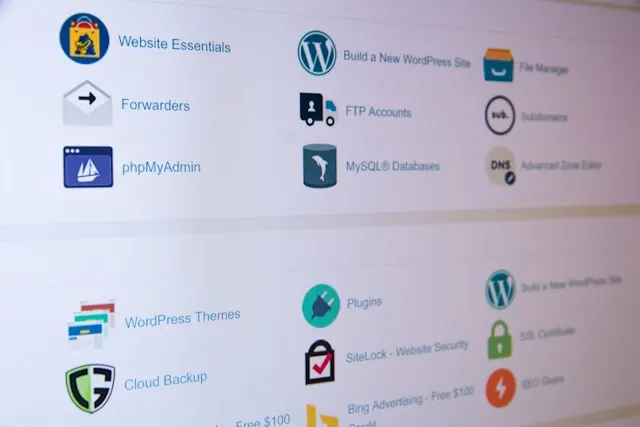- Your cart is empty
- Continue Shopping
Does Changing Web Hosting Affects SEO?

Before we talk about how changing web hosting affects SEO, let’s understand what web hosting and Search Engine Optimization (SEO) are. Web hosting is like renting space on the internet where your website lives and SEO is about making your website show up better in Google searches.
Why Web Hosting Matters for Websites
Web hosting is important because it affects how well your website works. If your website is slow or keeps going offline, people won’t like it, and neither will Google.
Speed and Uptime
When your website loads slowly or doesn’t stay online, it annoys people and hurts your Google ranking. So, good web hosting helps your website load fast and stay online more.
Server Location and Response Time
Where your web hosting server is situated can also impact how fast your website loads, particularly for people near that location. Plus, if the server responds fast to requests, it’s great for your website’s performance.
How Changing Web Hosting Affects SEO
Changing web hosting affects SEO for your website in several ways.
Rankings Might Drop Temporarily
Sometimes, after you switch hosting, your website’s ranking in Google might go down for a bit. That’s because Google needs time to understand your new setup.
Google Might Have Trouble Finding Your Stuff
When you change hosting, Google’s robots might have trouble finding all the stuff on your website. This can happen if the new setup is not done right.
You Might Lose Some Good Links
If you’re not careful when you change hosting, you could lose some good links from other websites. These links are like votes of confidence for your site, and losing them isn’t good for SEO.
How to Make Sure Changing Hosting Doesn’t Hurt SEO
To avoid problems when switching web hosting, there are a few things you can do.
Plan Carefully
Before you make the switch, plan everything out carefully. Make sure you have backups, and test everything to avoid surprises.
Set Up Redirects
Redirects tell Google where your stuff moved to. So, set up redirects from your old URLs to the new ones to keep things smooth.
Keep an Eye on Things
After you switch hosting, keep an eye on your website’s performance. If something goes wrong, fix it quickly to avoid SEO problems.
How to Pick the Right Web Hosting
Choosing the right hosting can prevent a lot of headaches.
Look for Speed, Uptime, and Support
Pick a hosting provider that offers fast loading times, guarantees uptime, and has good customer support. These things make sure your website stays healthy and Google-friendly.
Make Sure It Scales
Your hosting should be able to handle more visitors as your website grows. This way, you won’t run into problems when your site gets popular.
Conclusion
Changing web hosting affects SEO, but if you plan carefully and choose the right hosting, you can minimize the impact. Good hosting keeps your website fast and online, which Google likes. So, take your time and make the switch right.



